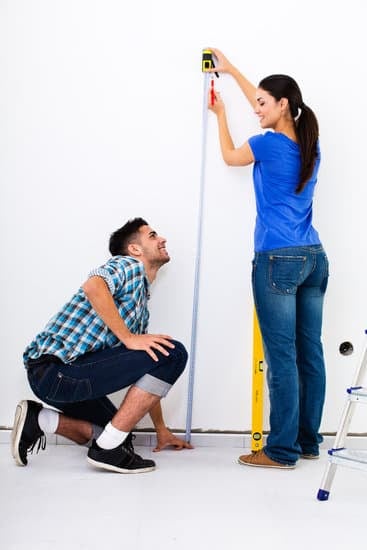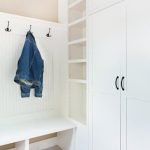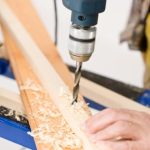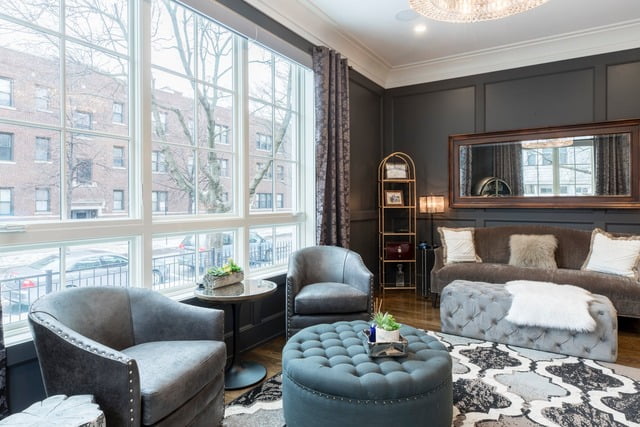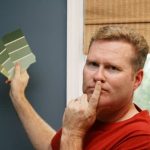Vinyl siding is a popular choice for homeowners looking to improve the value of their property. In this article, we will explore the impact of vinyl siding on home value and why it is an effective home improvement solution.
When it comes to buying or selling a home, curb appeal plays a crucial role in attracting potential buyers. The exterior of a house is the first impression that potential buyers have, and it significantly influences their perception of the property. Vinyl siding not only enhances the aesthetic appeal but also improves the overall value of a home.
Before delving into the specifics of vinyl siding, let’s define home improvement and its importance in increasing property value. Home improvement refers to any modification or renovation made to residential properties with the goal of enhancing their functionality, aesthetics, and efficiency.
Not only can these improvements make your living space more enjoyable, but they can also significantly affect your home’s market value when it comes time to sell. And one such improvement that has become increasingly popular is vinyl siding.
In this article, we will explore how vinyl siding contributes to the overall worth of a property by discussing its benefits in terms of curb appeal, energy efficiency, durability, and maintenance requirements. We will present facts and studies that support its positive impact on home value while also showcasing real-life examples from homeowners who experienced increased sales after installing vinyl siding.
Additionally, industry professionals’ insights and recommendations will provide further guidance for those considering vinyl siding as an option for enhancing their homes.
Whether you are a homeowner looking to increase your property’s value or a prospective buyer interested in understanding the potential benefits of vinyl siding, this article will serve as an informative guide on how vinyl siding can improve home worth while offering numerous advantages along the way.
The Importance of Curb Appeal in Real Estate
When it comes to selling a home, first impressions matter. Curb appeal plays a significant role in attracting potential buyers and can greatly influence the overall value of a property. In real estate, curb appeal refers to the aesthetic attractiveness of a home’s exterior, including its landscaping, architecture, and overall appearance from the street.
Studies have shown that homes with high curb appeal sell faster and for higher prices than those with low curb appeal. According to the National Association of Realtors, 71% of homebuyers believe that curb appeal is an important factor when choosing their dream home. Furthermore, research conducted by Michigan State University found that a well-maintained landscape with attractive curb appeal can add up to 5-11% to a property’s value.
Buyers often form initial opinions about a house within seconds of seeing it from the outside. A beautiful and well-maintained exterior suggests that the interior is equally cared for and inviting. On the other hand, a run-down or unattractive exterior may deter potential buyers from even considering viewing the inside of the house. Therefore, investing in enhancing curb appeal can pay off not only in terms of increased property value but also in attracting more interested buyers.
To improve curb appeal, homeowners can consider various factors such as landscaping, exterior paint or siding, roofing materials, windows and doors, lighting fixtures, and even small details like mailbox design and house numbers. Of these factors, siding plays a particularly crucial role in boosting a home’s exterior aesthetics while simultaneously providing practical benefits such as weather protection and energy efficiency.
According to Remodeling magazine’s “Cost vs Value” report for 2021, vinyl siding replacement ranks among the top five projects with the highest return on investment (ROI). This further highlights the importance of choosing quality siding materials that enhance both visual appeal and functionality. Homeowners should ensure they select vinyl siding that complements the style of their home and is installed by professionals to guarantee a seamless appearance and long-lasting durability.
| Data | Statistic |
|---|---|
| Homes with high curb appeal sell | 71% faster than others. |
| A well-maintained landscape can add | 5-11% to a property’s value. |
| Vinyl siding replacement ranks | among top projects with highest ROI. |
Understanding Vinyl Siding
Vinyl siding is a popular choice for homeowners looking to improve the value of their property. Understanding the composition and features of vinyl siding is essential in determining its effectiveness in enhancing a home’s worth.
Vinyl siding is made from a blend of PVC (polyvinyl chloride) resin and various additives. The PVC resin gives the siding its durability and strength, while the additives provide flexibility, color, and other desired characteristics. The manufacturing process involves extrusion, where the vinyl compound is melted, shaped into panels or pieces, and cooled to form solid sheets.
One of the key features of vinyl siding is its versatility. It comes in a wide range of colors, textures, and styles to suit different architectural designs and personal preferences. Whether homeowners want a traditional clapboard style or a more modern look with vertical panels or shingles, vinyl siding can accommodate their aesthetic needs.
In addition to its visual appeal, vinyl siding offers several practical benefits as well. Firstly, it requires minimal maintenance compared to other exterior materials such as wood or brick. Vinyl siding does not need to be painted or stained periodically and can be easily cleaned with soap and water. This low-maintenance aspect makes it an attractive option for busy homeowners who want to enhance their home’s appearance without investing excessive time and effort.
Secondly, vinyl siding is known for its durability. It can withstand harsh weather conditions including high winds, hailstorms, extreme temperatures, and UV exposure without warping, cracking, or fading significantly. This long-lasting nature ensures that homeowners do not have to worry about frequent repairs or replacements.
Lastly, vinyl siding provides protection against moisture intrusion when installed correctly with proper insulation and vapor barriers. Its interlocking panels create a barrier that prevents water from seeping into the walls of the house. This moisture resistance helps maintain the structural integrity of the home by preventing issues such as rotting wood or mold growth.
Overall, understanding the composition and features of vinyl siding highlights the reasons why it is a valuable tool in improving home value. Its versatility, durability, low maintenance requirements, and moisture resistance contribute to its effectiveness as a desirable exterior material. With these features in mind, homeowners can confidently invest in vinyl siding to enhance both the appearance and worth of their homes.
| Feature | Description |
|---|---|
| Versatility | A wide range of colors, textures, and styles to suit different architectural designs and personal preferences. |
| Maintenance | Minimal maintenance required; no need for painting or staining, easy to clean with soap and water. |
| Durability | Can withstand harsh weather conditions without warping, cracking, or fading significantly. |
| Moisture Resistance | Protects against moisture intrusion when properly installed with insulation and vapor barriers. |
Increase in Home Value
Vinyl siding is not only a popular choice for homeowners due to its durability and low maintenance requirements, but it also has a significant impact on the value of a home. Numerous studies and statistics have consistently shown that installing vinyl siding can lead to an increase in property value.
According to a study conducted by the National Association of Realtors, exterior improvements are among the most valuable home improvement projects in terms of return on investment. In fact, they found that homeowners who invested in vinyl siding saw an average return of over 75%. This means that if you spend $10,000 on vinyl siding, your property value could increase by more than $7,500.
The attractiveness of vinyl siding lies in its ability to enhance curb appeal. When potential buyers first approach a house, they form their initial impression based on its exterior appearance. Vinyl siding can completely transform the look of a home, giving it a clean and modern appearance.
It comes in a wide range of colors and styles to suit any architectural design or personal taste. Additionally, vinyl siding is resistant to fading, so it will maintain its vibrant color for many years.
In addition to improving curb appeal and increasing property value, vinyl siding offers several other benefits. One such benefit is improved energy efficiency. Vinyl siding acts as an additional layer of insulation for your home, helping to regulate indoor temperatures and reduce energy consumption. With proper installation and insulation, homeowners can save significantly on heating and cooling costs throughout the year.
To sum up this section:
- Installing vinyl siding has been proven to increase property value.
- Homeowners can expect an average return on investment of over 75% when investing in vinyl siding.
- Vinyl siding enhances curb appeal by giving homes a clean and modern appearance.
- The wide range of colors and styles available allows homeowners to personalize their homes.
- Vinyl siding provides added insulation leading to improved energy efficiency and cost savings.
With these benefits in mind, it’s clear that vinyl siding is an excellent investment for homeowners looking to increase the value of their homes while enjoying its various advantages.
Enhanced Energy Efficiency with Vinyl Siding
Understanding Vinyl Siding: Composition and Features
One of the key benefits of vinyl siding is its ability to enhance energy efficiency in homes. By understanding the composition and features of vinyl siding, homeowners can make an informed decision about whether it is the right choice for their property.
Defining Vinyl Siding and its Components
Vinyl siding is a type of exterior cladding that is made from polyvinyl chloride (PVC). It consists of panels that are designed to mimic the appearance of traditional wood siding, but with added durability and maintenance advantages. The panels are usually installed horizontally, overlapping each other to create a water-resistant barrier for the home’s exterior.
The Durability, Versatility, and Maintenance Aspects of Vinyl Siding
One of the main reasons why vinyl siding is popular among homeowners is its durability. Unlike other exterior materials such as wood or fiber cement, vinyl siding does not rot or warp when exposed to moisture. It is also resistant to pests like termites and does not require regular painting or sealing. Additionally, modern advancements in manufacturing have resulted in improved UV resistance, preventing fading and discoloration over time.
Moreover, vinyl siding offers versatility in terms of design options. It can be found in a variety of colors and textures, allowing homeowners to customize their home’s appearance based on their personal preferences. This versatility makes it easier for homeowners to enhance their curb appeal while ensuring long-lasting protection against the elements.
Energy Efficiency with Vinyl Siding
Another significant advantage of vinyl siding is its contribution to enhanced energy efficiency in homes. The material acts as an extra layer of insulation for the house, helping to regulate indoor temperature and reduce energy consumption throughout the year.
The Benefits of Insulation
The insulation provided by vinyl siding helps keep heat inside during colder months and prevents heat from entering during warmer months. This feature can lead to reduced reliance on heating and cooling systems, resulting in lower energy bills for homeowners. Furthermore, by reducing the amount of air leakage in and out of the house, vinyl siding can create a more comfortable living environment year-round.
In addition to lowering energy costs, improved insulation can also reduce a home’s carbon footprint. By using less energy, homeowners can contribute to sustainability efforts and promote a greener lifestyle.
Enhanced energy efficiency is one of the key advantages offered by vinyl siding. Its composition and features make it an effective insulator, which can lead to reduced energy consumption and lower utility bills for homeowners. The combination of durability, versatility, low maintenance requirements, and enhanced energy efficiency makes vinyl siding an attractive choice for homeowners looking to improve their home’s value while enjoying long-term benefits.
Increased Durability and Reduced Maintenance
Vinyl siding is not only known for its visual appeal and energy efficiency, but it also offers increased durability and reduced maintenance compared to other common exterior materials. This section will delve into the longevity and low maintenance requirements of vinyl siding, as well as provide a comparison with other exterior materials.
Longevity of Vinyl Siding
One of the key advantages of vinyl siding is its exceptional durability. Unlike traditional wood or fiber cement siding, vinyl is highly resistant to damage from pests, weather conditions, rotting, and mold growth. Vinyl siding is designed to withstand harsh elements such as wind, hail, extreme temperatures, and UV radiation without fading or warping over time. With proper installation and routine maintenance, vinyl siding can last up to 40 years or more.
Low Maintenance Requirements
Vinyl siding requires minimal upkeep compared to other exterior materials. Unlike wood siding that needs regular painting or staining to retain its appearance, vinyl siding maintains its color and finish without any extra effort from homeowners. The non-porous surface of vinyl makes it resistant to dirt, dust, stains, and moisture accumulation. In most cases, a simple rinse with a garden hose will remove any surface dirt or grime.
Furthermore, vinyl siding does not require annual sealing or caulking like wood siding does to prevent water intrusion. Homeowners can save time and money on maintenance tasks by choosing vinyl siding for their homes. A periodic inspection for damage or loose panels is recommended, but overall the maintenance requirements are significantly reduced with vinyl siding compared to other options.
Comparison with Other Exterior Materials
When considering options for exterior cladding materials in terms of durability and maintenance requirements, homeowners often compare vinyl with alternative choices such as wood or fiber cement. While wood has been used traditionally for its natural beauty and charm, it requires consistent upkeep throughout its lifespan. Wood sidings are susceptible to insect infestation, rotting, warping, and cracking if not properly maintained.
Fiber cement, on the other hand, is a popular choice for its durability and ability to mimic the appearance of wood siding. However, fiber cement is heavier and more fragile than vinyl siding, making installation more complex and potentially costly. Additionally, fiber cement requires periodic painting to maintain its color and protect it from moisture damage.
Boosting Home Sales through Vinyl Siding
When considering home improvement projects, homeowners often wonder which upgrades will have the biggest impact on their property’s value. One upgrade that consistently proves to be beneficial is vinyl siding. Not only does vinyl siding enhance a home’s curb appeal, but it can also significantly boost home sales.
The impact of vinyl siding on potential buyers’ perception of a house is undeniable. The exterior appearance of a property plays a crucial role in attracting buyers and increasing their interest. With its clean and polished look, vinyl siding can give a home a fresh and modern aesthetic, instantly improving its curb appeal. This improved curb appeal can lead to more showings, increased interest from potential buyers, and ultimately quicker sales.
Furthermore, homeowners who invest in vinyl siding may see a substantial return on their investment (ROI). Studies have shown that installing vinyl siding yields one of the highest returns when compared to other types of home remodeling projects. In fact, according to the Remodeling Magazine’s Cost vs. Value Report, homeowners recoup an average of 75% of the cost of new vinyl siding upon resale.
Moreover, there are numerous success stories from homeowners who have significantly increased their property value and successfully sold their homes after installing vinyl siding. By showcasing real-life examples and testimonials from satisfied homeowners who reaped the benefits of vinyl siding, potential buyers can gain confidence in investing in properties with this desirable feature.
Experts’ Opinions and Recommendations
When it comes to assessing the impact of vinyl siding on home value, industry professionals, real estate agents, and home appraisers have valuable insights to share. These experts are well-versed in the world of real estate and have personal experiences working with homeowners who have chosen to install vinyl siding. Their opinions and recommendations can provide valuable guidance for those considering this home improvement project.
Real estate agents often emphasize the importance of curb appeal when selling a property, and many believe that vinyl siding can significantly contribute to a positive first impression. According to David Rosenburg, a real estate agent with over 15 years of experience, “Vinyl siding is one of those upgrades that can instantly transform the look of a home.
It gives it a fresh and clean appearance that can be very appealing to potential buyers.” Rosenburg recommends vinyl siding as a cost-effective way to enhance curb appeal and increase value.
Home appraisers also recognize the positive effects of vinyl siding on property value. In fact, according to a study conducted by the National Association of Realtors, homes with vinyl siding had an average increase in value by 78% of their installation cost.
This means that if you invest $10,000 in installing vinyl siding on your home, it could potentially increase its value by $7,800. The study also revealed that homes with vinyl siding tended to sell faster than those without it, further supporting its positive impact.
Industry professionals echo these sentiments and emphasize the durability and low maintenance requirements of vinyl siding as additional perks for homeowners. Theresa Spencer, a contractor specializing in exterior remodeling projects, explains: “Vinyl siding is incredibly durable and resistant to damage from weather conditions such as wind, rain, or snow.
It also requires minimal maintenance compared to other types of exterior materials like wood or brick.” With less time spent on upkeep and more focus on enjoying their homes, homeowners can reap benefits both in terms of property value and personal convenience.
Taking into account the opinions and recommendations of experts, it is clear that vinyl siding can have a significant positive impact on home value. Its ability to enhance curb appeal, its durability and low maintenance requirements, and the potential return on investment all make vinyl siding an attractive option for homeowners looking to improve their property value while enjoying long-term benefits.
Conclusion
In conclusion, vinyl siding can have a significant impact on the value of a home. Through its ability to enhance curb appeal, improve energy efficiency, increase durability, and reduce maintenance requirements, vinyl siding offers numerous benefits that can positively influence a home’s worth.
One of the key advantages of vinyl siding is its ability to improve curb appeal. As discussed earlier, curb appeal plays a crucial role in attracting potential buyers and making a positive first impression. With its versatility and aesthetic appeal, vinyl siding can instantly transform the look of a home and make it more appealing to potential buyers. This can ultimately translate into higher property value.
Furthermore, vinyl siding contributes to enhanced energy efficiency in homes. By providing better insulation and reducing energy consumption, homeowners can potentially save on their utility bills over time. This financial benefit adds another dimension to the value that vinyl siding brings to a property.
Additionally, the durability and low maintenance requirements of vinyl siding make it an attractive choice for homeowners. Unlike other exterior materials that may require frequent repairs or replacements, vinyl siding has a long lifespan and can withstand various weather conditions. Its low maintenance nature ensures that homeowners can save time and money on repairs and upkeep.
Frequently Asked Questions
What type of siding adds the most value to a home?
One type of siding that adds significant value to a home is fiber cement siding. This durable and low-maintenance material has gained popularity among homeowners and real estate professionals alike. Its ability to mimic the look of wood while offering exceptional resistance against pests, moisture, fire, and extreme weather conditions makes it highly desirable.
Additionally, fiber cement siding has a long lifespan and requires minimal maintenance, making it an attractive option for prospective buyers. Its aesthetic appeal and durability are key factors that contribute to its positive impact on home value.
How much value does replacing siding add to your home?
The actual value added by replacing siding will vary depending on several factors such as the type of siding being installed, the condition of the existing siding, the overall condition of the home, and regional market trends. However, in general, replacing old or worn-out siding can improve curb appeal and enhance a home’s overall aesthetic appeal.
This can positively influence prospective buyers’ perceptions of the property and potentially increase its market value. While it’s challenging to quantify an exact dollar amount that replacing siding adds to a home’s value, it is generally considered a wise investment with a positive return.
Does replacing wood siding with vinyl increase home value?
Replacing wood siding with vinyl can indeed contribute to an increase in home value for several reasons. Vinyl siding offers multiple benefits over traditional wood siding that resonate with homebuyers. It is generally more cost-effective both in terms of installation and maintenance compared to wood siding since it does not require regular painting or staining.
Moreover, vinyl is known for its durability, resistance to pests and rotting, and ability to withstand harsh weather conditions better than wood. These appealing qualities make homes with vinyl siding more desirable in today’s market, potentially leading to increased property value when compared directly with homes featuring wood siding.

I’m thrilled to have you here as a part of the Remodeling Top community. This is where my journey as an architect and remodeling enthusiast intersects with your passion for transforming houses into dream homes.

